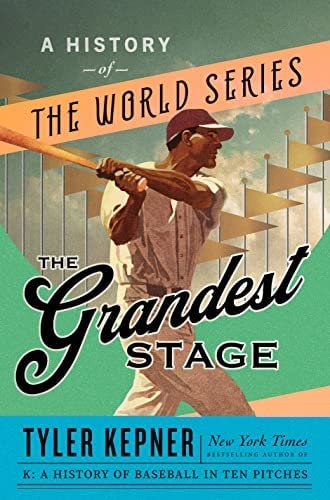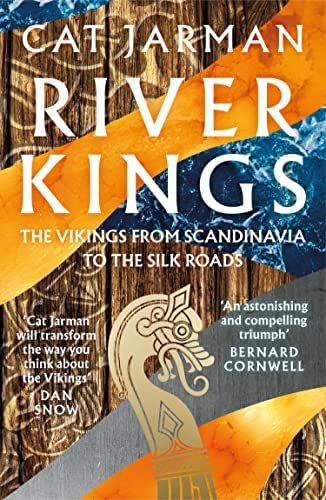The Best Books of 2022: History
/The Best Books of 2022: History
The grueling solipsism of the 21st century would seem to sound the death-knell for the responsible writing of history, but many of this year’s entries in the genre worked a happy alchemy on this trend. Many scholars and historians did indeed go at their subjects in a far more individual-centered way than we’ve seen in earlier decades, but they often turned those individual stories into mosaics that actually managed to show old and settled topics from new and fascinating vantage points. In a world still reeling with COVID and the knock-on effects of a land war raging in Europe, it was curiously encouraging to see how alive the writing of history still is. These were the year’s best examples:
10 The Ruin of All Witches: Life and Death in the New World by Malcolm Gaskill (Knopf) – Gaskill centers his surprisingly boisterous book in 17th century Springfield, Massachusetts, where a wave of hysteria gripped the population, and eventually the suspicions of witchcraft started falling on the two kinds of people most vulnerable to those kinds of suspicions: the jerks and the mentally troubled. Gaskill digs deep into the records and produces an account fit to share a shelf with some of the best books on witchcraft crazes.
9 Silent Spring Revolution: John F. Kennedy, Rachel Carson, Lyndon Johnson, Richard Nixon, and the Great Environmental Awakening by Douglas Brinkley (Harper) – Readers who are still interested in the subject of Douglas Brinkley’s new book even after they’ve read the 5000 words of the subtitle will find details and flourishes in the actual text that will fascinate them: the story of a group of anti-nuclear and pro-environment activists who reacted against the hyper-industrialization that kicked off in the mid-20th century. Brinkley here relies on his strengths as a writer, most especially his skill at conveying personalities (something very evident in his “American Moonshot,” among other books). His Supreme Court Justice William O. Douglas in particular is winningly memorable.
8 Mercy: Humanity in War by Cathal Nolan (Oxford University Press) – Readers who were impressed by Cathal Nolan’s The Allure of Battle (and it’s hard to imagine a reader who wouldn’t be) will find his new book a marvelous pendant, a tremendously insightful study of the compassions that seep up through the violence and depravity of war even at its most savage pitch. As with that earlier volume, here Nolan’s passion and scholarship reveals levels and nuances in a monolithic subject that previously felt both settled and sadly trivial.
7 A Commonwealth of Hope: Augustine’s Political Thought by Michael Lamb (Princeton University Press) – One of the joys of reading history and biography is the endless capacity for surprising even the long-time reader. Scholars chase their own curiosity and often find veins of promise others have dismissed or overlooked. This meaty, engaging book by Michael Lamb is a perfect example: a study of the worldly political views of St. Augustine, who’d lived through the sack of Rome and famously written his mammoth City of God in order to reflect on the Heavenly world. In clear and inviting prose, Lamb steadily, enthusiastically reveals a new side of St. Augustine.
6 The Abyss: Nuclear Crisis Cuba 1962 by Max Hastings (Harper) – A crucial hinge-point of 20th century history, the near-brink of thermonuclear war, is the subject of Hastings big new book, and he brings the reader right into those thirteen days in 1962. The Cuban Missile Crisis has been exhaustively documented and recounted, but even so, the subject yields extra points and insights under Hastings’s normal approach of telescoping his narrative from specific testimonies to broader narrative. I’d been half-assuming that no author could make a new Cuban Missile Crisis book interesting to me, and Hastings delightfully proved me wrong.
5 The Grandest Stage: A History of the World Series by Tyler Kepner (Doubleday) – One of the measures of first-rate history-writing is that it will instruct and delight readers even on a subject they don’t find interesting, and this fantastic book by Tyler Kepner is a perfect illustration. Beyond a benign interest in the leisurely afternoon activities of portly millionaires, I have no compelling fascination with the World Series, and yet Kepner crafts such a varied, fascinating soap opera out of the con men, hucksters, giants, and connivers who created one of the great American sporting events that even the most indifferent readers will find themselves eagerly turning the pages to find out who cheats next.
4 Blood and Ruins: The Last Imperial War, 1931-1945 by Richard Overy (Viking) – Given the 21st century’s obsession with colonialism and its sins, a book like this by Richard Overy was certainly inevitable, a book assessing the Second World War specifically through the lens of thwarted imperialism and empires either dying or changing hands. The thing that saves the book from feeling as trivially retaliatory as so much 21st-century historical maundering is Overy’s tremendous narrative skill and deeply impressive scholarship. The result of all this is an account of WWII that feels genuinely revelatory.
3 River Kings: A New History of the Vikings from Scandinavia to the Silk Roads by Cat Jarman (Pegasus Books) – It would hardly be a year-in-history without a rip-snortingly good Viking book, and here archeologist Catrine Jarman builds just such a book from the ground up, as it were, studying tiny potsherds and fragments and even teeth in order build an entire account of the world of the Vikings – not just the warriors in their longships but the women and children they left behind on all those raids. As the chapters move on, a startlingly human version of the Vikings emerges.
2 Rebels Against the Raj: Western Fighters for India’s Freedom by Ramachandra Guha (Knopf) – Guha takes his basic story, the profiles of seven people who devoted themselves to the cause of Indian independence, and steadily, skillfully expands on that framework in the marvelously strong and seeking way of all his previous books. The men and women he profiles come wonderfully to life, and so do their individual spheres of passion, from journalism to environmentalism. Like so many books on the list this year, Guha’s book takes a settled and well-covered subject and makes it feel new.
1 After the Romanovs: Russian Exiles in Paris from the Belle Époque Through Revolution and War by Helen Rappaport (St. Martin’s Press) – A common thread running through many of this year’s best works of history is the approach of presenting readers with the past through personalities, the approach of filling the pages with character studies in order to illuminate an epoch. And in Helen Rappaport’s new book, the best in the genre for 2022, the technique is brought to a terrific pitch of craft, telling the stories of the Russians dreamers, poets, artists, and nobility who fled revolution and war and fetched up in Belle Époque Paris and tried in their various ways to make sense of their new world.











